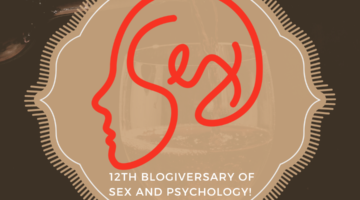How (And Why) I Became A Sex Researcher
October 24, 2018 by Justin Lehmiller

As someone who studies the science of sex for a living, I’m often asked what it is that drew me to this field. How and why did I decide to devote my life to studying, writing, and talking about sex? Here’s what I tell people.
I never planned on becoming a sex scientist. In fact, the thought didn’t even cross my mind until I was already in graduate school working on my PhD! Growing up in a small town in Ohio and receiving much of my education in Catholic schools (including my undergraduate degree), I didn’t realize that the job I have now even existed. The topic of sex (let alone sex research) is something that no one ever really talked about for much of my life.
The turning point for me was when I was assigned to be a teaching assistant for a human sexuality course while I was working on my doctorate. It was a hugely popular class with hundreds of students enrolled. My job was to sit in on every lecture and take notes, as well as to lead a weekly discussion section for a small group of 20-30 students.
I didn’t exactly feel qualified for the job, given that my only prior exposure to sex ed was in the 5th grade, when boys and girls were separated for an afternoon to learn the basics of how babies are made. I can’t say I learned much from that childhood experience—in fact, it left me with more questions than answers. Sex was also covered in one of my high school health classes, but it was awkward AF because it was taught by one of the sports coaches who clearly didn’t want to do it. He also spoke in a monotone voice (not unlike Ben Stein) that managed to make sex sound like the most boring thing anyone could ever do.
That said, my experience as a teaching assistant was nothing short of eye opening. Over the course of that semester, I learned about the pioneering research of Alfred Kinsey, William Masters, and Virginia Johnson. I learned about the fascinating technologies and methods scientists use to study sex. I had so many of my own questions about sex and relationships answered—questions I’d had for my entire life. I also learned why sex science is so important—how it can enhance and enrich our relationships, and even save lives.
Leading the weekly discussion section was also the first time I had ever talked about sex-related issues openly with a group of strangers. I’d be lying if I said it wasn’t a little weird at first, but I quickly settled in and I got to see how much my students enjoyed our discussions and how this class was impacting them. For many, it was a life-changing experience—one that gave them the tools they needed to talk to their partners about sex, to feel “normal” for the first time in their lives, and to better understand and appreciate sexual diversity.
I knew then that I had found the right field for me. Fortunately, it wasn’t a stretch to move into sex research and education with the degree I was already pursuing (a PhD in social psychology—a field that’s all about studying and understanding why people do the things they do). I feel lucky that I was able to simply take what I was learning and apply it to the study of human sexuality without having to start all over.
My career feels accidental in many ways. I mean, had I been assigned to assist with another course, I may very well have taken a completely different career path. However, I couldn’t be happier with how things worked out. It’s hard to imagine a career that’s more fascinating and fulfilling than the one I have now.
Want to learn more about Sex and Psychology ? Click here for previous articles or follow the blog on Facebook (facebook.com/psychologyofsex), Twitter (@JustinLehmiller), or Reddit (reddit.com/r/psychologyofsex) to receive updates.
Image Source: 123RF
You Might Also Like:

Dr. Justin Lehmiller
Founder & Owner of Sex and PsychologyDr. Justin Lehmiller is a social psychologist and Research Fellow at The Kinsey Institute. He runs the Sex and Psychology blog and podcast and is author of the popular book Tell Me What You Want. Dr. Lehmiller is an award-winning educator, and a prolific researcher who has published more than 50 academic works.
Read full bio >

